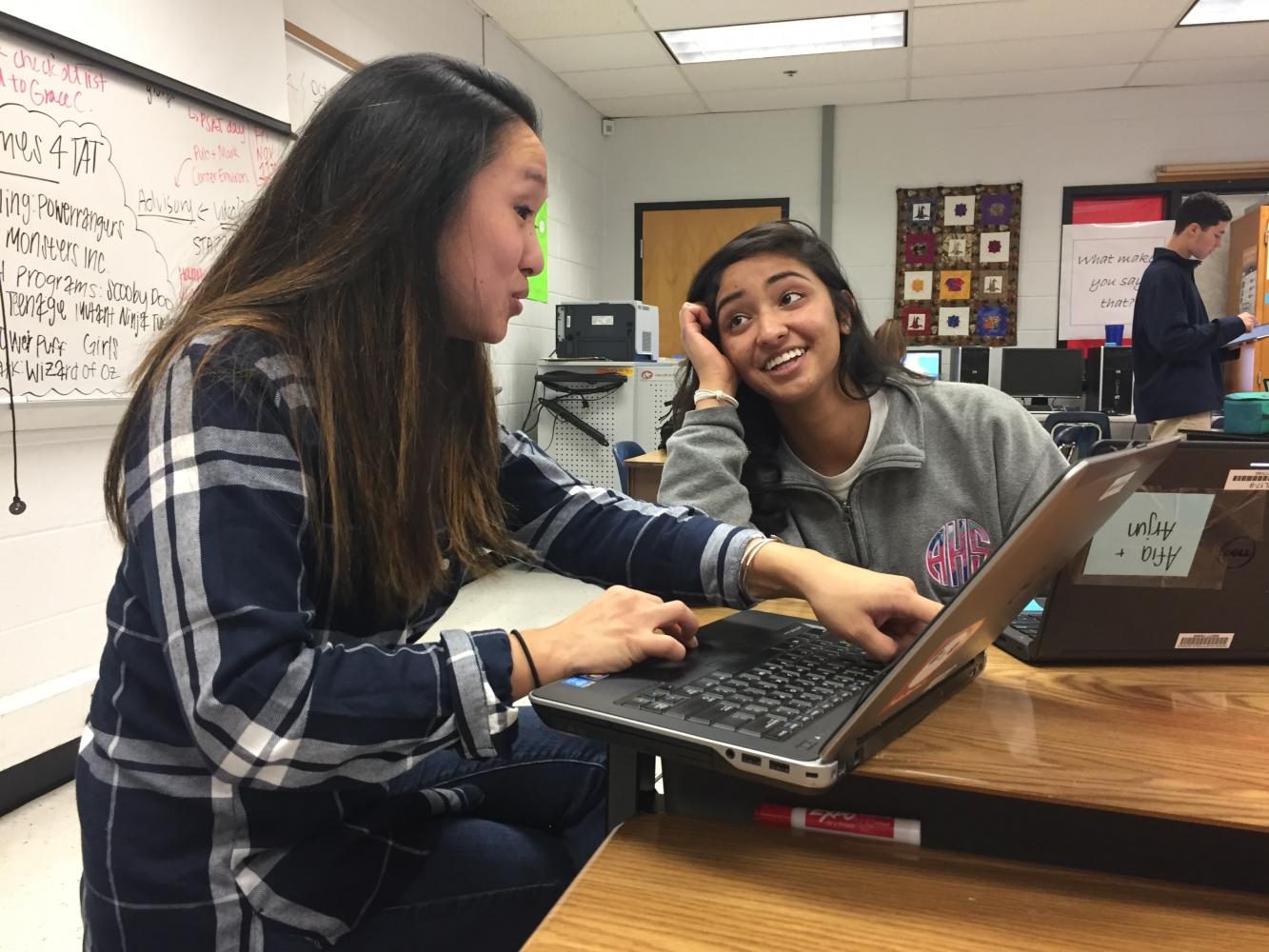What makes a good teacher?
62 Oakton students were surveyed to determine what the student body believes to be the most important quality for a teacher to have. All of these qualities and more combine to make a good teacher. And for students who find that their teacher is “lacking” in any of these qualities, below are suggestions for what role they can play as a good student to be successful regardless.
According to the survey, students feel that the most important quality in teachers is that they have good relationships with their students. World history teacher Ms. Browning agrees, stating that “if you don’t have good relationships, none of the rest matters.” The world is driven by relationships. When students have good relationships with their teachers, they are more likely to enjoy going to class. And in many ways, a good relationship with a teacher makes a class easier for the student. Students who feel comfortable around their teachers are more open to communicating with them and, consequently, will be more likely to seek help outside of class. Students who do not feel they have a good relationship with their teacher should try getting to know them as a person instead of just as a teacher. Most teachers love when students ask them about their day and make conversation outside of the course material. Students who get to know their teachers as people may find that their relationship with them will improve in the future.
The second most important quality to students is that teachers are prepared and organized. One of the most frustrating things that students experience is receiving a zero on assignment, not because they failed to turn it in but because their teacher lost it. Having a disorganized teacher can make an already challenging class even more difficult for students. At the same time, students should remember that teachers are human, too. Teachers have to deal with disorganized students as well. But when trying to survive a class with a disorganized teacher, students must remember that they cannot change their teacher. They can, however, change their own approach to the situation. To make it easier on the disorganized teacher, students need to make sure they always turn assignments in on time and to the correct place. Some students even take pictures of their completed assignments as proof that they did it, in case the teacher loses it. Some teachers may have problems with disorganization because of how busy they are, and may appreciate help getting organized.
Experiencing challenges or high standards in the classroom is another thing that students appreciate about their teachers. Sophomore Hannah Cho said, “The most important thing teachers can do is challenge their students. When they challenge [their students], they are pushing them to do more, and pushing them to set higher standards for themselves.” Because Oakton is such a highly-ranked school, odds are that all students have had a teacher who tested their academic limits at one point. Struggling in a class can be frustrating, but adapting to the new standards set forth in the class will always work to the student’s benefit. Spanish teacher Mr. Eslami, for instance, feels that all teachers should challenge their students. “Teachers should never stop raising the bar for their students,” said Eslami. Setting higher expectations is the key to seeing real academic growth in students. As for students struggling with these higher standards, they should not let themselves be intimidated. Struggling students should ask their teachers for help, take advantage of opportunities to reflect on or reassess assignments, and never stop working hard.
One of the qualities that was less stressed by students – but is nevertheless important in a good teacher – is their knowledge of the subject matter they are teaching. Oakton teachers are almost always experts on the subject matter of the class they teach. However, every school has those few teachers who don’t seem to completely know what they are doing, or maybe are not very good at communicating what they know to their students. When this is the case, students need to learn how to teach themselves the material in order to succeed. Some strategies for teaching yourself class material include seeking out online resources or crash-courses, reading material straight from class textbooks, or, like many students do, investing in a tutor. Oakton also has a free and easily accessible resource for struggling students: The Center for Collaborative Learning located in the library. Students who are struggling in a class because of a seemingly incompetent teacher should stay positive, seek outside resources, and, when all else fails, take solace in the knowledge that their class will eventually end.
Overall, communicating with teachers is the best way students can solve problems within the classroom. In the midst of frustration with a teacher, students should be open and honest, yet always seek to understand that teachers have their own strengths and weaknesses, just like students.

Kathryn is an Editor-in-Chief of the Oakton Outlook and has been part of the staff for four years. She has previously served as the Photo Editor and...




